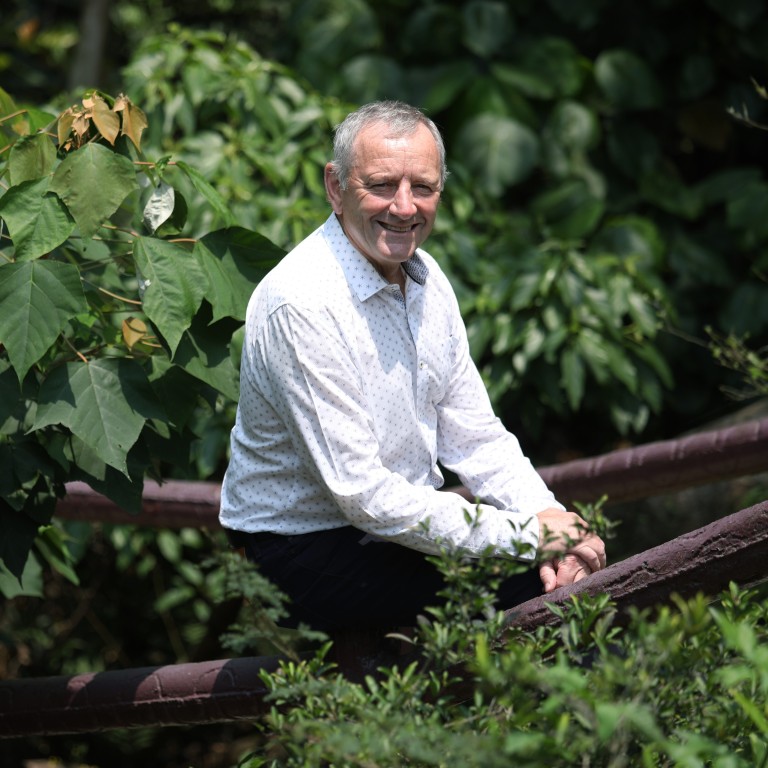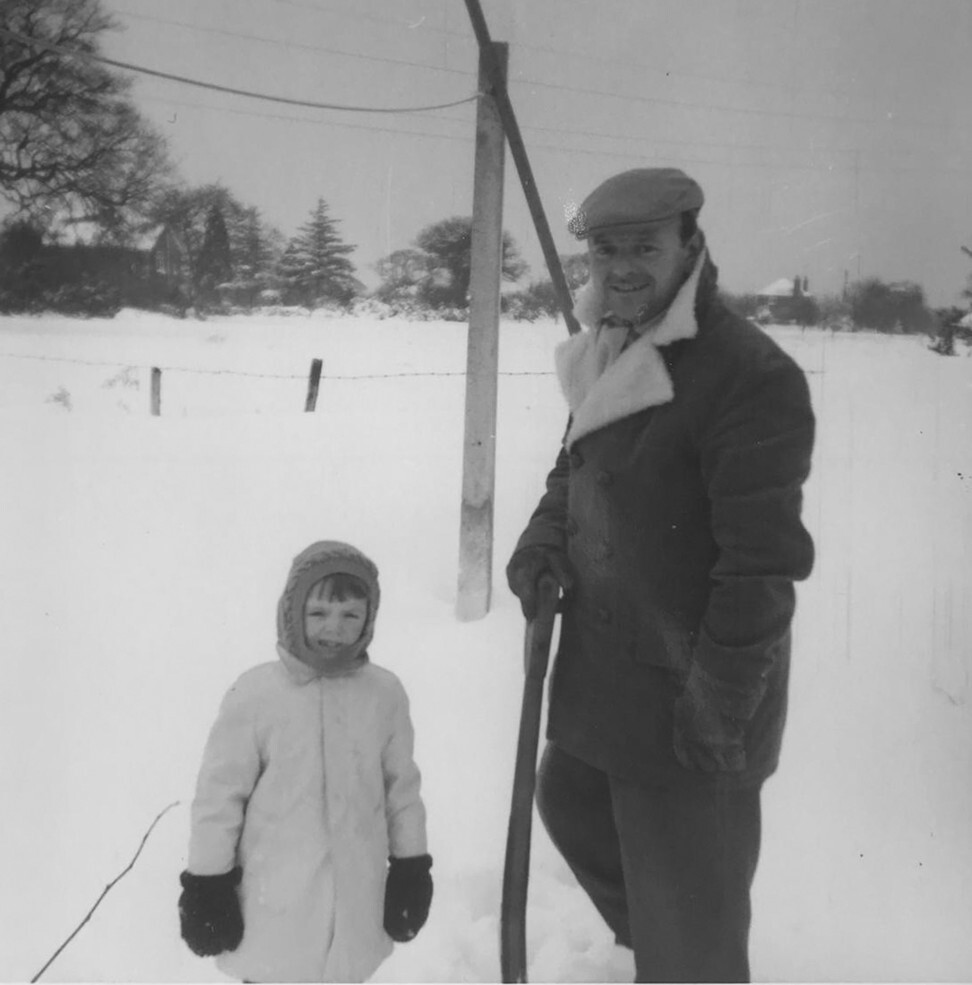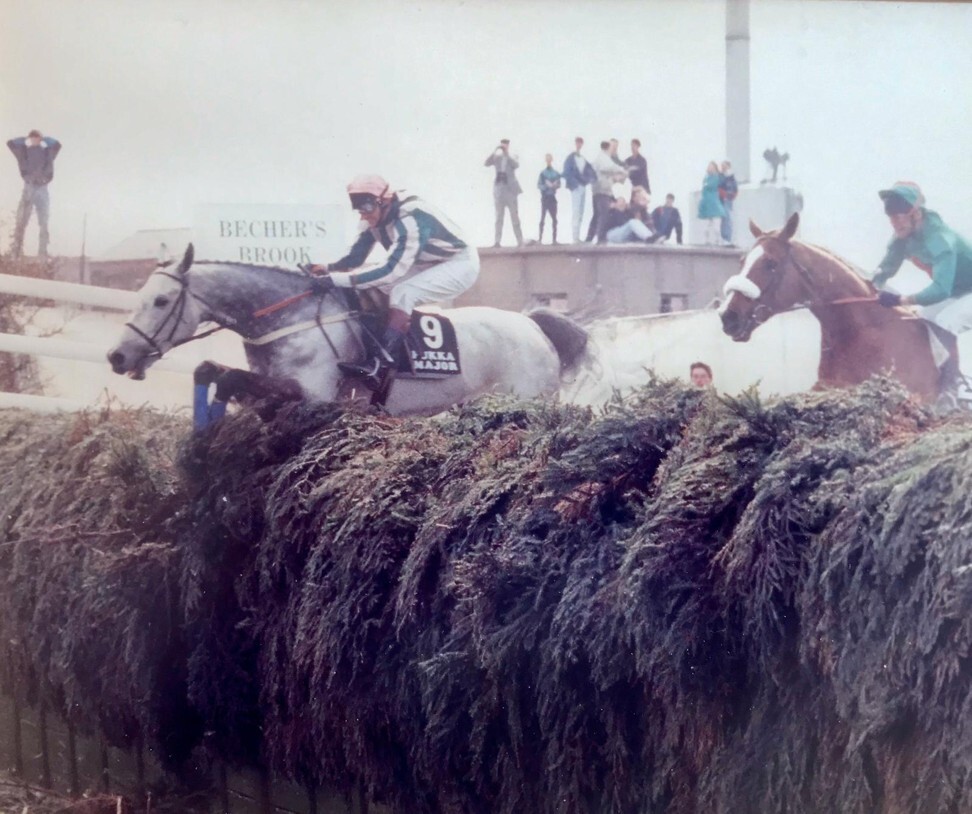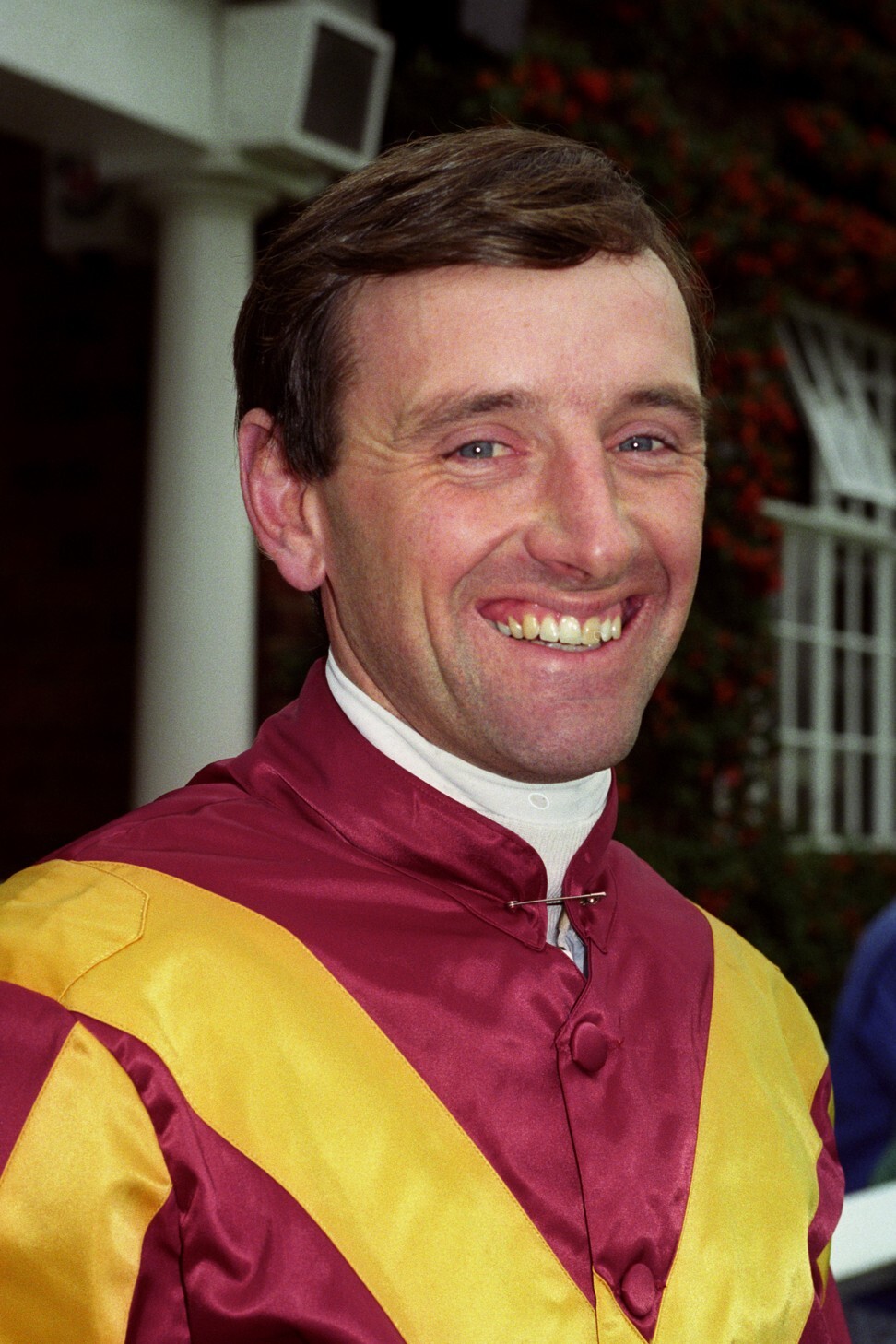
‘If there’s one thing that survives in Hong Kong, it’s racing’, says horse trader Mark Richards
After a lifetime in horse racing and 20 years at the Hong Kong Jockey Club, the former jockey and commentator is going it alone
Sporting life: I was born in Bournemouth (southern England) in 1959. My mother bred dogs – pointers and cocker spaniels – with my godmother. My father was a maintenance engineer at Hurn Airport. At weekends he’d go point-to-point racing – amateur steeplechase – and take me with him in my pushchair. I knew at the age of three that I wanted to be a jockey.
I was an only child. I wasn’t spoilt money wise, but my parents were very loving and supportive. I loved sports and played cricket, football and rugby. When I wasn’t at the racecourse on weekends, I was dragged off to dog shows and learned to dog handle.
The first time I got on a horse was with a friend whose parents ran a riding school. I was nine years old and he was a couple of years older. We rode bareback up a bank and then fell off, laughing. It felt fantastic to gallop across a field.
I was eaten up with horse racing and studied form when I should have been doing homework. I would ask my father to bring the Sporting Life newspaper home and I’d be glued to it. For my 10th birthday, my mother took me to ride her friend’s horse. It was obvious I loved it and her friend said, “You have to give him the chance to do what he wants to do.”

In the saddle: I started riding lessons on Saturday mornings with an eccentric, brilliant horsewoman called Miss Bush. After six months, I would spend therest of the day there mucking out and grooming. I wanted to be with horses all the time. When I was 13, I asked my mother to get the number for racehorse trainer Ian Dudgeon from my godmother. I called him and he suggested I visit with my parents.
After we’d looked around, he said, “You’re five or six years away from being a jockey, you’ll have to do university.” I told him I didn’t want to be in school any longer. I just wanted to be a jockey. To be perfectly honest I still want to be a jockey. But I’m older and wiser. It’s something that gives you up before you give it up, unfortunately.
Hard yards: I left school at 15, after my O levels. School finished on the Friday and I started work with Ian Dudgeon on the Sunday. I got my digs and £1 a week for the first year and then I got a raise to £3 a week. We mucked out and groomed lots of horses and after a week I was allowed to ride out. Everything came very slowly.
Now you see kids leaving school and getting to ride at the age of 16 or 17. There were half a dozen lads at this yard, they were your family, but it was tough. You were always getting put in the water trough for not being quick enough – or hung up in hay nets. Every two weeks you had a day off.
It was hard work, but when all you want to do is be a jockey and ride, it doesn’t matter. I went racing at Taunton one day and put £2 to win on odds of 50 to one, and I won. When I got back to my lodgings, the girls serving in the kitchen wanted to see what £100 looked like. It bought my first car. You need a bit of luck to help you along the way. I was there for three years and rode my first winner there.

Running on empty: I decided to approach trainers who might give me more opportunities to ride and David Gandolfo, in Wantage, Berkshire, offered me a job straight away. I had 78 rides in my first season. I didn’t ride a winner, but it was all about experience and learning the trade.
It’s important to keep your weight down. I would have an espresso for breakfast. I wouldn’t eat anything before I rode because I was told that if you have a fall and you break something, they can’t operate if you have a full stomach.
Jumping ship: I spent seven years with Gandolfo and rode out my apprenticeship there (this requires riding a specific number of winners; 50 in those days). I was the Daily Mirror’s champion conditional jockey. When my apprenticeship ended, I wasn’t able to claim a weight allowance and things went downhill a bit. I’d bought a house and was struggling financially. I was playing cricket with a young trainer called Oliver Sherwood. I asked if he needed anyone to work, he said he was always looking so I jumped ship and that’s when my career took off.
I don’t think jockeys make good husbands because you are never there
I was 28 by then, which is getting on a bit for a jump jockey, but that’s when everything changed. I rode a double (two winners) at the Cheltenham Festival in 1992. It was Gold Cup day and I rode the winner of the first race, which is called the Triumph Hurdle, on Duke of Monmouth, and the Cathcart Chase on Repeat The Dose.
I’ve had many injuries and smashed most of my bones, but I had an especially bad accident when the horse in front of me stopped short, my horse’s nose went into its tail and it kicked both legs up and shattered my left knee. I was laid up for a long time.
Ladbrokes (a British bookmaker) asked if I’d like to do some media for them, be the expert in the room. I was 33 when I did my first television work. Over the next six years, I started to do more TV and less riding. I was just short of my 40th birthday when I retired, in June 1999.
On the road: I met Lydia, a trainer, in 1987. Our daughter, Katie, was born in 1991 and we married a year later. I don’t think jockeys make good husbands because you are never there. When I got married, I stopped working in the yard for Sherwood, but I was still riding out for him two or three mornings a week.
I would get up at 4.30am, drive two hours (from Sussex to Lambourn, Berkshire), then go and ride wherever I was riding and wouldn’t get home until 7pm or 8pm. I’d sit down to a smoked salmon sandwich and a glass of white wine and go to bed. That was my life.

At the end of my first 12 months, I got offered a job with one of the betting syndicates as a track work watcher, being at the track in the morning and watching the horses, because my eye for the horses is my talent. But as far as I was concerned, I’d come to Hong Kong to further my broadcasting career.
Club nights: I was thankful to the Jockey Club for giving me a job, it was the change I was looking for. Myself and TV presenter Darren Flindell had eight years together and we certainly changed the trackside programme.
In 2008, I was offered a new position to start and front the Racing Club, a young members’ club that aimed to bring in a new generation of owners. Then in 2010, I became executive manager of international sales. I travelled around the world buying yearlings, which we then sold as three-year-olds to Jockey Club members. I did that until the end of last season.
Horses for courses: I’m in the process of setting up my own company, Mark Richards Equine, buying horses to sell. It’s what I’ve been doing for the past 10 years but now I’ll be doing it privately. Hong Kong is reliant on importing horses to race and that’s incredibly hard at the moment.

